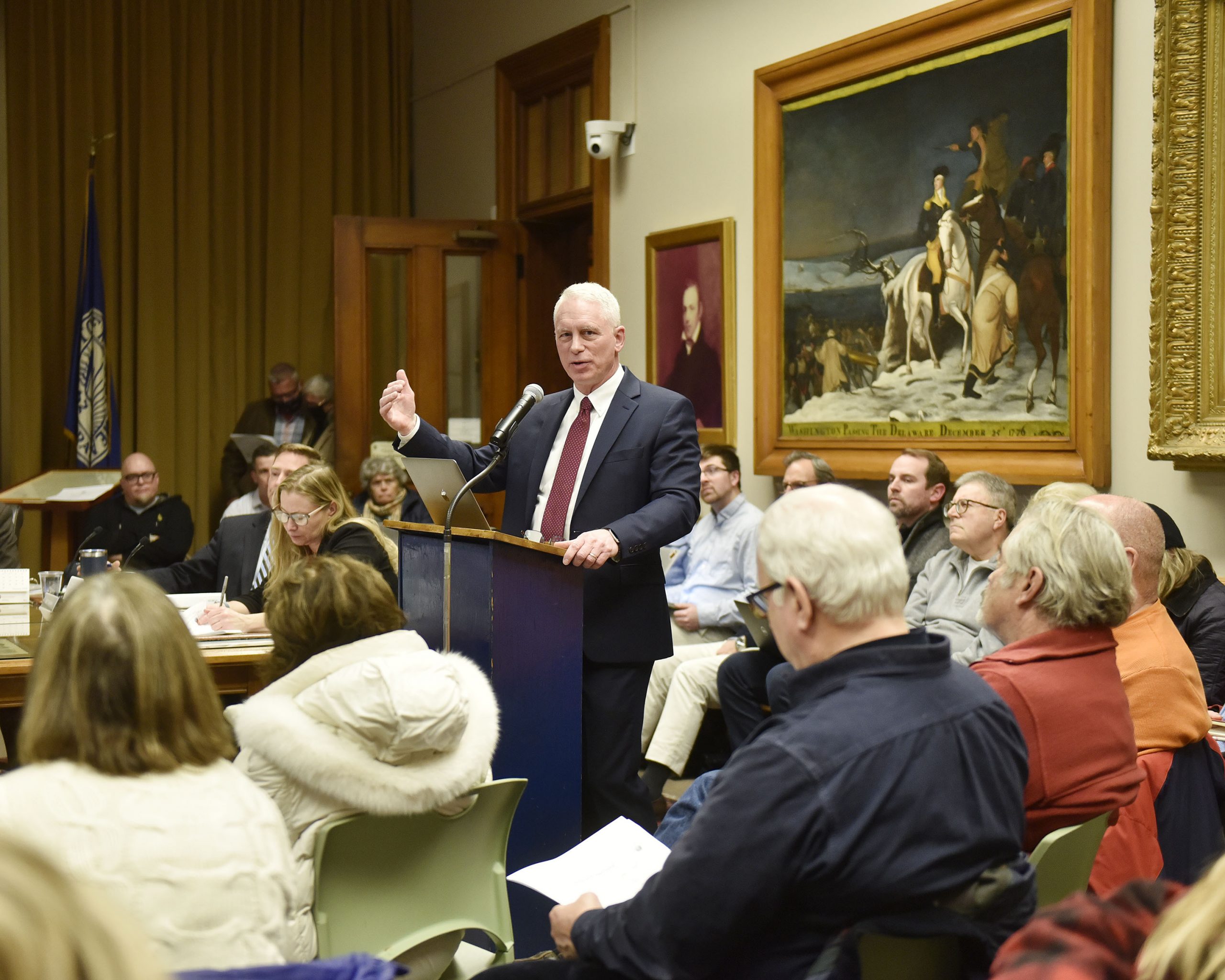The town will not be expected to request an override for fiscal year 2025 to address the structural deficit that it has fallen into, Town Administrator Thatcher Kezer announced while giving his state of the town address at Abbot Hall Wednesday.
Despite facing a projected $4.256 million deficit for FY25, Kezer explained that the town has decided to hold off on presenting an override due to unknown contractual costs of multiple open bargaining agreements.
This year, multiple employee agreements will expire on June 30, including public and police and municipal employees.
For the upcoming fiscal year, Kezer said that he is confident both the town and the schools will be able to cut down to a level services budget without having to present an override at Town Meeting.
“It is our expectation that we are going to be able to get to a bottom line number and not ask for an override to fund it,” Kezer said.
In order to get to that number, both the school district and town will have to make roughly $2 million in cuts each. At the School Committee meeting last week, Assistant Superintendent of Finance and Operations Michelle Cresta said that cuts would likely result in more than 33 staffing positions being eliminated, which was the number cut from FY24’s school budget.
The expense projections for FY25 come out to $111,269,738, while revenues are projected to come in at only $107,013,225.
During his address, Kezer reiterated that the town is facing structural defect issues due to its past reliance on free cash spending, limited tax revenue growth due to Proposition 2 ½, and a lack of new growth.
To increase tax revenue, Kezer stated that the town will be proposing a local room and meal tax to be put forth at Town Meeting. If accepted, the tax projects to increase new revenue by between $800,000 and $1 million a year.
“That’s significant,” Kezer said.
Kezer also assured those in attendance that the addition of a local rooms and meals tax would not affect the competitiveness of the town’s businesses with other neighboring municipalities.
“If Town Meeting accepts it, are we putting our businesses at a competitive disadvantage to others in the region,” Kezer said. “The answer is, in our opinion, no. Every other municipality in the region has already accepted this local option.”
Since taking over, Kezer has emphasized decreasing the town’s reliance on free cash spending. He presented a plan for a $3 million decrease in free cash used in the operating budget from $8 million to $5 million.
Kezer also emphasized the focus on moving the town to the Munis financial software, which will provide “real-time, transparent, understandable, and actionable information,” and announced the launch of ClearGov, which can be found on the town website under the Select Board page. ClearGov will be used for budget-building data and for community members to view town finances and demographics, among other data tools.
While improvements and steps have been made to dig the town out of the structural deficit, Kezer said that the work is far from done with and warned that an override will still need to be presented in the future.
“Despite the optimism I’m displaying as to how we’re making progress, we are not out of the woods in a long-term sense,” Kezer said. “Dealing with a structural deficit, very likely at some point, our only option is going to be an override.”

